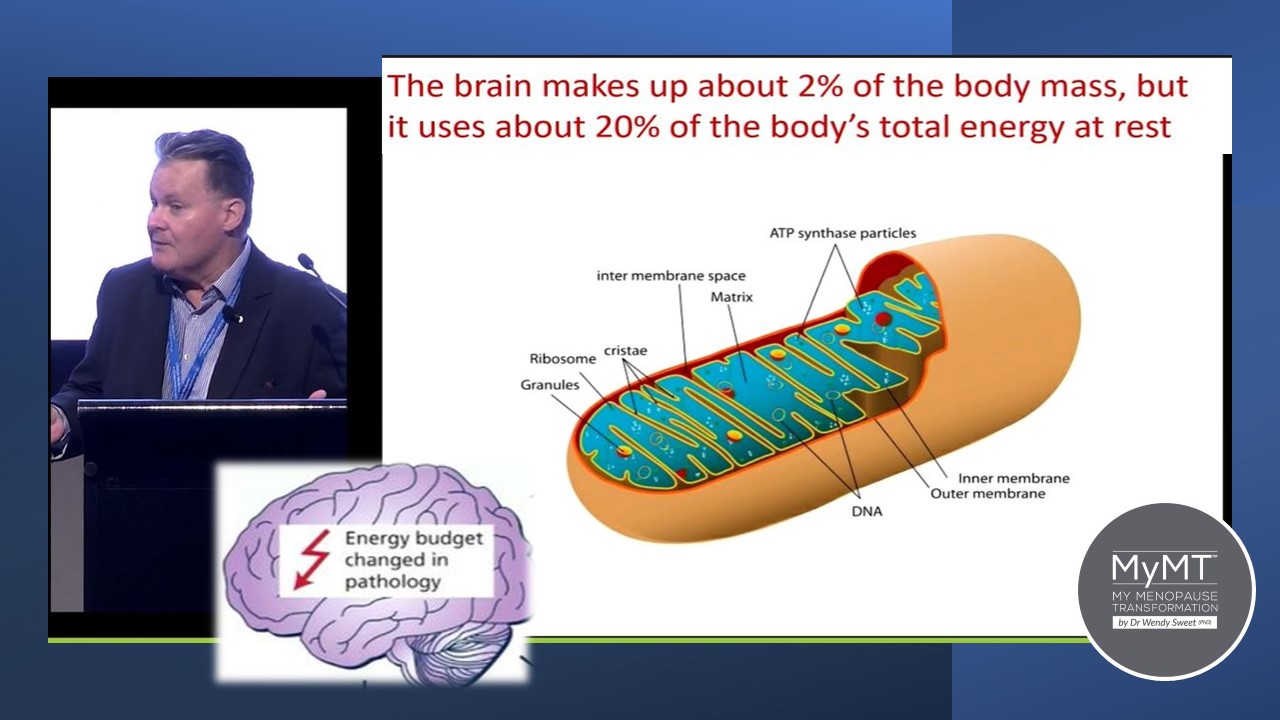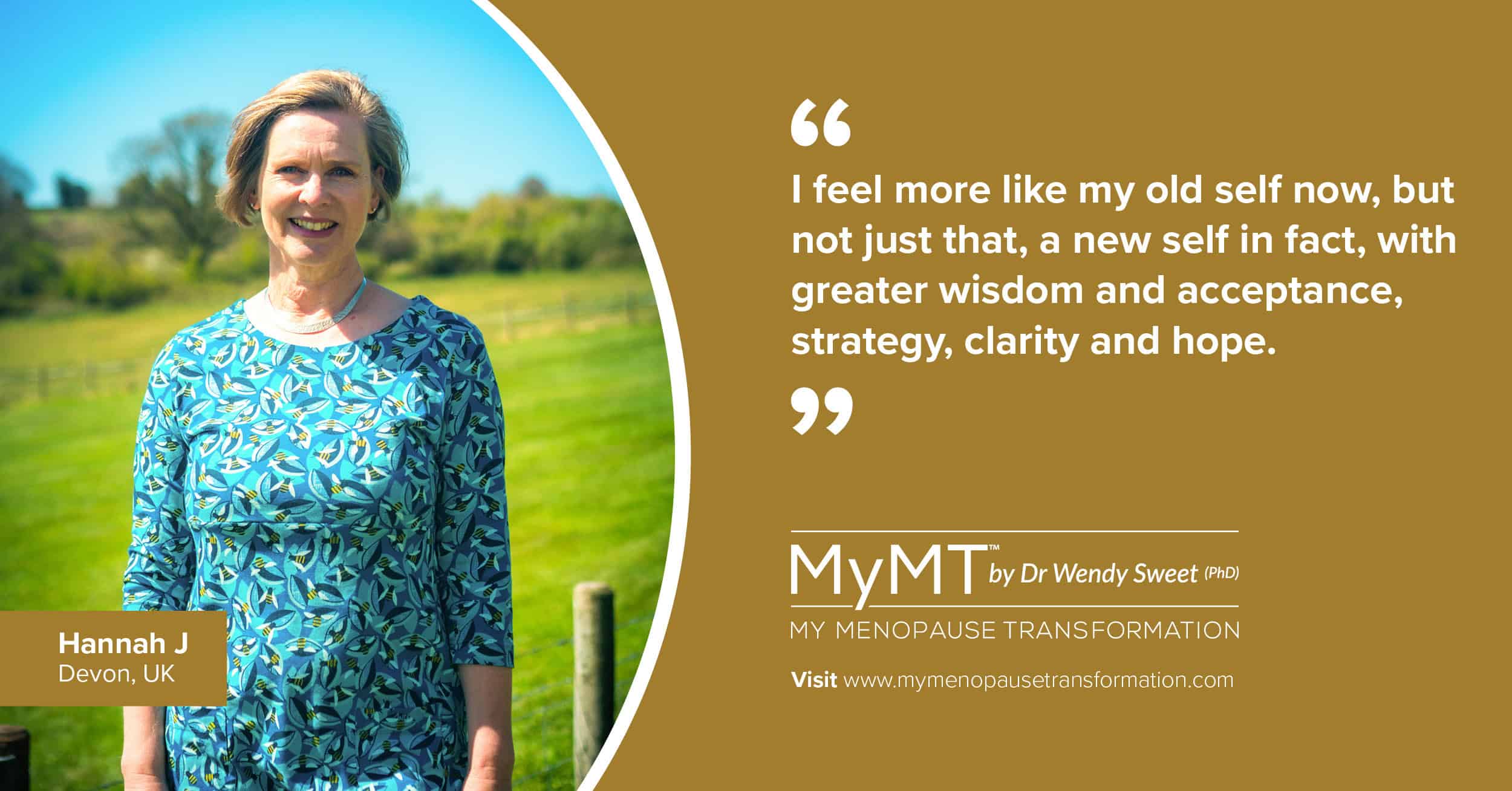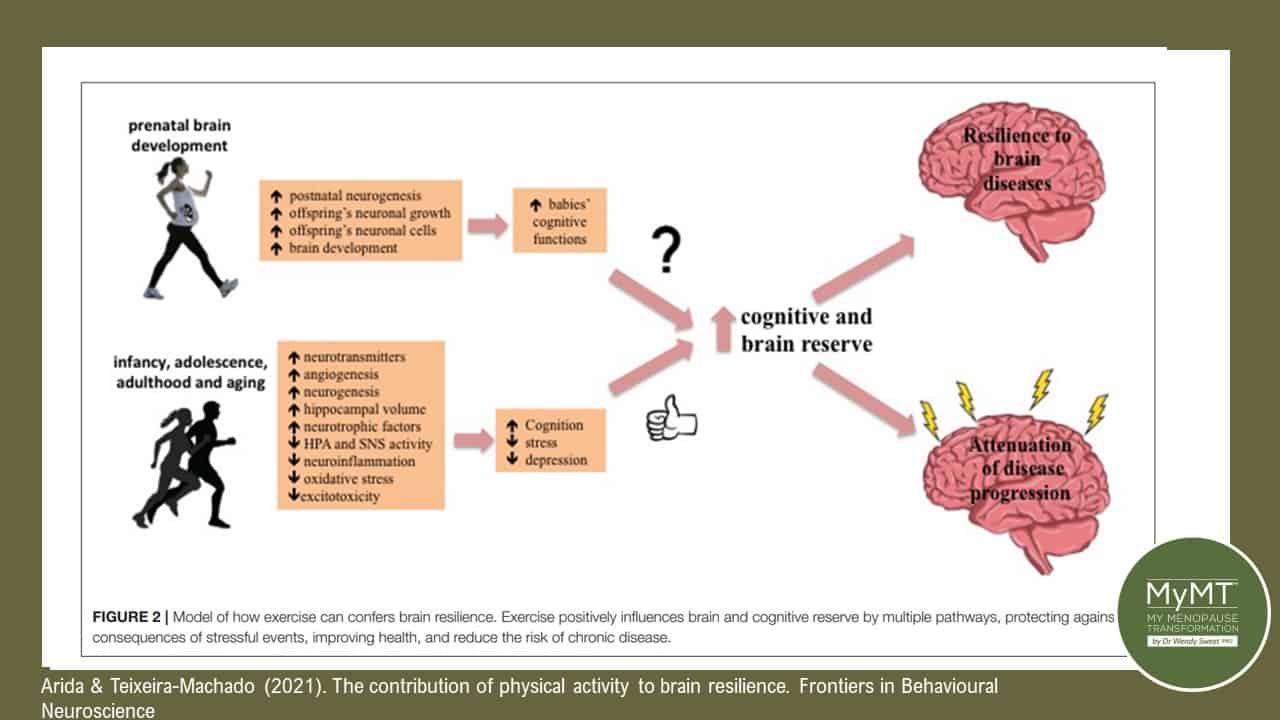Do you ever watch those programmes on TV that trace a person’s ancestry? Or perhaps you’ve had your own ancestry traced.
If so, then the ability to do this is thanks to your mother, grandmother, great-grandmother and so on and the number and size of tiny organelles called mitochondria.
A mitochondrial DNA test (mtDNA test) traces a person’s matrilineal or mother-line ancestry using the DNA in his or her mitochondria. mtDNA is passed down by the mother unchanged, to all her children, both male and female.
You may have heard about your mitochondria. Especially if you’ve been following my posts for a while. I was thinking about these mighty organelles this week and the link to brain health as I focus on helping you to build your resilience to health changes, especially in the brain, as you move into peri-menopause and through menopause.
The major role of mitochondria is to convert dietary fuel into ATP – your energy molecule. Hence, mitochondria are found throughout your body, including in your brain tissue and nervous system pathways too.
Our mitochondria are inherited from our mothers via the egg and genetic tracing can be used to trace ancestry from the maternal branches of families. When it comes to our health during menopause, we never think about the health of our mother when we were born do we?
But maternal health and their exposure to toxins over their lifetime influences your health as you move through life too. This is because the health and fitness of your mother when you were born, determines the baseline number and size of your mitochondrial cells throughout your body and brain.
Many women complain of forgetfulness around the time of the menopausal transition and because of the association between episodic memory loss and Alzheimer’s disease, this ‘forgetfulness’ symptom (aka brain fog) is of course worrisome.
However, forgetfulness is a common symptom at other ages as well, especially during puberty and pregnancy – both of which are stages of life whereby there’s a bit of chaos with hormones, particularly oestrogen and progesterone.
There’s a reason I’m talking to you about forgetfulness and your brain’s mitochondria.
Professor Zoltan Sarnyai (that’s him in the image below) is a neuroscientist researching mental illness at the Laboratory of Psychiatric Neuroscience at James Cook University in Australia. He’s a very clever guy.
It was his presentation in 2022 that bought my attention to the link between our menopause hormonal changes, our brain-fog, our stress and our mighty mitochondria and most importantly, the lifestyle solutions that are now recognised as helping to preserve mitochondrial health as we get older.

The link between mitochondria, menopause and your brain health
Mitochondrial cells are where your energy is made. There are millions of mitochondrial cells around the body and they have multiple and crucial roles in cell maintenance, survival and wellbeing.
Mitochondria also play an essential role in the generation of steroid hormones including the female sex hormones. As such, female sex hormones are, in turn, able to modulate mitochondrial activities. (Lejri et al. 2018).
We already know that a large amount of oestrogen in the female body is released from the ovaries. But as it’s released it circulates throughout the body, and crosses the blood-brain barrier to act upon the cells within the brain.
In the brain, oestrogen has a number of roles including helping with cerebral blood flow as well as in the preservation and maintenance of nerve transmission. Oestrogen also operates as an anti-inflammatory agent.
This is why our menopause transition becomes a perfect storm for disruptions to our brain function and cognition. Oestrogen acts directly upon mitochondria in the brain. (Del Río et al., 2018).
It makes sense then, that as women move through menopause, our brain mitochondria are affected in ways that promote inflammatory changes.
Which is why, it’s no surprise that our entry into peri-menopause, the stage before our periods end, increases the incidence of forgetfulness and brain-fog. And as Professor Sarnyai reminds us, stress (both current and past) has a long-lasting and negative impact on brain mitochondria.
When you also factor in long-covid into this equation, then this may increase the overall stress-load on mitochondrial function too. Too much stress creates too much inflammation in our mitochondrial cells and too much inflammation in these crucial organelles leads to a number of symptoms such as:
- fatigue
- brain fog and depression
- memory loss, lack of motivation and feelings of over-whelm
- pain and soreness in muscles
- headaches and migraines
- poor sleep
Do any of these symptoms sound familiar to you now that you are in or past your menopause transition?
This is what Professor Sarnyai reminded me about – the link between our ageing mitochondria and inflammatory changes and why we have to look after our brain, not only throughout our life, but also, during menopause.
And this is where the type of exercise we are doing to build our resilience to brain changes with age matters more than we think.
Exercise is known to induce many positive effects on the brain mentions the study on brain health and resilience by Aridi and Teixeira-Machado (2021).
As such, exercise represents an important tool to influence neuro-development and shape the adult brain to react to life’s challenges. Midlife is one of those times that we have the ability to improve cognitive improvement and our resilience to stress.
A growing number of studies have demonstrated that exercise not only recovers or minimizes cognitive deficits by inducing better neuroplasticity but also counteracts brain changes with age. (Aridi & Teixeira-Machado, 2021).
On my hike in the Swiss Alps this week, I wanted to remind you about the importance of the right type of exercise to help build your resilience to brain changes during menopause. So just have a listen to the brief video below when you can.
The Pillars of Brain Health (Sarnyai, 2022)
- Manage your stress – “whatever happens with stress in the brain, happens to the body” mentioned Professor Sarnyai. It’s a reminder that focusing on strategies to manage stress is important, including physical stress from over-exercising. If you are doing too much high intensity exercise day after day, then this can cause over-loading on your nervous system too.
- Feed your brain the healthy Mediterranean Diet. This is the approach I take in the MyMT™ programmes but I’ve modified it specifically for menopause and post-menopausal women. What we must remember however, is that the energy demands of our brain is high. We need to ensure that we feed our brain. If women are thin and fasting a lot, but experiencing brain fog and anxiety, then it’s important to reduce the fasting – your brain needs fuel!

- Exercise aerobically – oxygen is stored in mitochondrial cells, hence your brain mitochondria require a lot of oxygen. Exercising aerobically whereby you aren’t completely out of breath, helps your brain health. How we develop more mitochondria and improve their function as we age, is through daily aerobic exercise.
- Reduce or remove alcohol. “The effects of alcohol last in the brain for up to several weeks” mentioned Sarnyai in his presentation. If individuals are experiencing changing moods, depression or increased anxiety, then it’s important to reduce or remove alcohol. It’s damaging to mitochondria.
- Exercise and Mindfulness help to boost glutamate production in the brain. 80% of all nerves in the brain need glutamate in order to transmit nerve impulses but chronic stress negatively impacts glutamate production. Glutamate is important to memory, cognition, and mood regulation and both exercise and mindfulness have a strong impact on brain glutamate levels. (Pal, 2021).
- Sleep all night! Without enough sleep, our mitochondria don’t produce enough energy. If you aren’t sleeping well, then please consider coming on board with either of the MyMT™programmes.
- Stay connected … social isolation affects brain mitochondrial health but positive social interaction helps to buffer stress.

Age, stress and other factors such as our menopause hormonal changes disrupt mitochondria’s many functions.
This is why longevity and health researchers are finding that when it comes to our metabolism, energy production, immune health repair and regeneration, our tiny mitochondria matter more than we think. But for women heading into menopause and post-menopause, it’s not just our brain mitochondria we need to focus on, it’s our muscles too.
As we move through menopause and age, we are losing muscle. When we lose muscle, we also lose numbers of our powerful little mitochondria – a condition called sarcopenia, which is the loss of muscle as we age. If you have persistent low energy, sore, aching or easily-cramping muscles, then the health and function of your muscle mitochondria may be to blame, so I will talk about this in the weekend newsletter.
Mitochondrial dysfunction appears in a wide range of brain and other health disorders and during menopause, mitochondrial dysfunction can accelerate. Over the last decade, accumulating evidence has suggested a causative link between mitochondrial dysfunction and ageing and yes, declining levels of oestrogen has a role to play in this. [Henderson & Brinton, 2010; Lejri et al, 2018;
Whilst millions of women find relief from their brain fog and mood swings with oestrogen replacement medications and/or anti-depressants, and whilst there seems to be a window of opportunity in peri-menopause to take Menopause-HRT, making changes to our lifestyle to help maintain healthy mitochondria is important, as Professor Sarnyai reminded those of us attending his session.
This is why I’m often reminding you that, because our menopause transition is the biological gateway to the next phase of our life and we are ageing, we need to change things up a bit in relation to how we look after ourselves.
Numerous changes occuring around our body are perfectly normal, including changes to our mitochondria, but what our focus should be on, is to slow down the rate of change, especially when it comes to our precious brain health.
Dr Wendy Sweet (PhD)/ Member: Australasian Society of Lifestyle Medicine

References:
Arida RM, Teixeira-Machado L. The Contribution of Physical Exercise to Brain Resilience. Front Behav Neurosci. 2021 Jan 20;14:626769. doi: 10.3389/fnbeh.2020.626769.
Bennett, S. (2016). Mighty Mito: Power up your mitochondria. Amazon Books: Santa Monica: USA
Berger M., Juster RP., Sarnyai Z. (2015). Mental health consequences of stress and trauma: allostatic load markers for practice and policy with a focus on Indigenous health. Australas Psychiatry. 23(6):644-9. doi: 10.1177/1039856215608281.
Eyre HA, Lundin R, Falcão VP, Berk M, Hawrot T, Leboyer M, Destrebecq F, Sarnyai Z, Reynolds C 3rd, Lavretsky H, Kolappa K, Cummings J. Brain Health Is a Determinant of Mental Health. Am J Geriatr Psychiatry. 2023 May; 31(5):379-381. doi: 10.1016/j.jagp.2023.02.005.
Filler, K., Lyon, D., Bennett, J., McCain, N., Elswick, R., Lukkahatai, N., & Saligan, L. N. (2014). Association of Mitochondrial Dysfunction and Fatigue: A Review of the Literature. BBA clinical, 1, 12–23. https://doi.org/10.1016/j.bbacli.2014.04.001
Henderson, V. W., & Brinton, R. D. (2010). Menopause and mitochondria: windows into estrogen effects on Alzheimer’s disease risk and therapy. Progress in brain research, 182, 77–96. https://doi.org/10.1016/S0079-6123(10)82003-5
Kwon, D. (2021). Could Mitochondria Be the Key to a Healthy Brain? Scientific American. Publ. June 18th, 2021.
Lejri, I., Grimm, A., & Eckert, A. (2018). Mitochondria, Estrogen and Female Brain Aging. Frontiers in aging neuroscience, 10, 124. https://doi.org/10.3389/fnagi.2018.00124
Melhuish Beaupre LM, Brown GM, Braganza NA, Kennedy JL, Gonçalves VF. (2022). Mitochondria’s role in sleep: Novel insights from sleep deprivation and restriction studies. World J Biol Psychiatry. 23(1):1-13.


